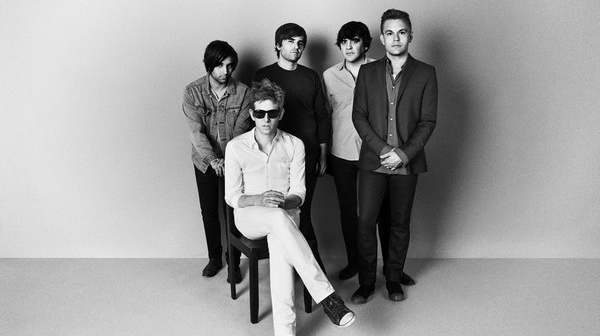“We used a 16 track recorder instead of an eight track,” says Kitty, the youngest of the Durham siblings. “We wanted to up our game and get more channels, and I think for this record, we all knew that we could put together a bigger sound, a bigger production. We wanted to add more stuff, like a string section. If we had just eight channels, we would have run out.”
As a result, the trio’s third outing is a notably fuller sounding record, with strings and horns in abundance, yet subtly placed behind the chief instruments. The band’s taught musicianship and songwriting sees them traverse familiar genres like country (Whiskey, Bitchin’) R&B (Feeling of Wonder), (Good Looking Woman) and less trodden fields of reggae on the thoroughly enjoyable Turkish (and this is coming from a guy who hates reggae).
“When we did the overdubs, we had in mind what we were going to do, but then we came up with some new parts, which in a way, transferred some of the tracks, writing new bits in.” Though their producer Mick Jones (of The Clash fame) has been producing since the early ‘80s, the old recording gear took some getting used to: “I think he was a bit blown away because today, he’s used to working with computers, that’s what he knows, and obviously when you’re working like we do, you can’t add in bit later on a computer, you have to get it right, get all the overdubs right. He got used to that quite quickly, we were like, ‘No you can’t go on a laptop afterwards’.”
There’s something endearing rather than snobbish about how they go about recording, an approach probably influenced by them growing up in a musical household where instruments and records were always being played. One can almost imagine the Durham household operating in a manner opposite to that movie cliché; the stern parents dismayed at the rock’n’roll records brought home by their rebellious teen.
“We grew up playing music, a lot of it was rock’n’roll. My mum she was always well into music. She never did it professionally but she was in a band when she was younger, but she’s got a pretty big collection of loads of different kinds of music, so we were always just listening to everything at home.”
Hence, even as early as their teenage years, they’ve been performing together; their early success raised questions early on as to what to do about their schooling. “By the time it got to me [graduating secondary school] the band had reached a stage where it was like, ‘We may as well carry on with this, it seems to be going well’.” Going well is an understatement if ever there was one, as two days after finishing her exams, they were off to do a tour of the US with Coldplay. “We were thrown in the deep end,” she exclaims, “but it was really incredible. Obviously being at school we weren’t able to tour, it was just gigs on the weekend. But now it’s a full time job, which is great because we all love doing it.”
In the years since their first album, it does feel like the trio are coming into their own a little bit, as, when they started out, they were pigeonholed somewhat and defined by a ‘40’s retro aesthetic that dominated their album design and marketing material – all pinned up hair, wartime dresses and black and white photos.
Nowadays though, they seem much freer to be who they are and not necessarily prescribe themselves to a particular look.
“The whole retro thing, it was weird, we play all kinds of music and it was a little frustrating people latched on to one kind of aspect of that. With this album, we didn’t say, ‘We’ll do this, or do that,’ or, ‘we’ll go in that direction,’ everything just happened and unfolded as we went along. I think the music and songwriting came first… It’s us writing about shit we’ve been through. We’ve all grown up.”
Though it’s been a while between albums with their last record Smoking in Heaven coming out in 2011, Durham insists their time was spent effectively in making sure they got it right, rehearsing for five months before heading into the studio to produce the 12 tracks for the record (they had 13 but Jones was superstitious about having 14 tracks). “It’s special to us,” Durham says. “We haven’t released anything for a long time.” Nor have they toured Australia for some time. “At some point we’re going to come back and do some more gigs, it’s just finding some time to do it. I can’t wait. I love playing in Australia, it’s brilliant.”
BY GARRY WESTMORE







